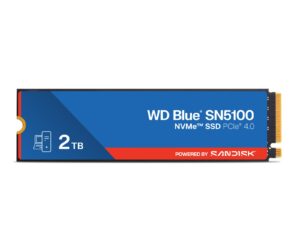You know what’s wild? While everyone’s talking about the next big thing in fintech, there are engineers quietly building the backbone of Africa’s financial future. And honestly? Most of them don’t get nearly enough recognition.
Cross-border payments used to be this nightmare maze of fees, delays, and paperwork. But 2025? It’s a completely different game. We’re seeing African innovators crack problems that stumped Silicon Valley for years.
At the heart of this transformation is one engineer whose work has become the unsung foundation of how millions of Africans move money across borders today.
Read also: With DingPay, Itohowo Udofia is bringing Apple Pay’s reliability and ease to Africans
The Infrastructure Architect Leading the Revolution
Meet Okwuchi Uzoigwe. Here’s someone who actually gets it. Really gets it.
She didn’t just stumble into fintech leadership. She earned her stripes the hard way, working at some of Nigeria’s biggest banks, seeing firsthand how clunky traditional systems really are, then deciding to build something better. Think of her as someone who’s been inside the machine, understood its problems, and then built something completely different.
And the industry took notice in a big way. She recently received the “Most Exceptional Software Engineer of the Year” award at the Nigeria Technology Awards. But here’s what makes that recognition even more impressive, it’s backed by numbers that’ll make your head spin.
Okwuchi has helped scale fintech platforms that now process millions of dollars monthly in cross-border transactions. That’s not play money. That’s real families sending real support across real borders, trusting that the infrastructure she built won’t let them down.
What makes her different from everyone else in this space? She’s obsessed with the stuff most people never think about. You know when you send money and it just… works? That’s because someone like Okwuchi spent months making sure the backend can handle whatever you throw at it.
Her journey reads like a masterclass in understanding both sides of African finance. She cut her teeth at major financial institutions, Stanbic IBTC Bank and Fidelity Bank Nigeria, where she saw exactly what keeps banking executives awake at night. Legacy systems that crash under pressure. Processes that take forever. Security vulnerabilities that could expose millions of transactions.
Then she made the leap to fintech, where she could actually fix these problems.
At her current role, she’s done something remarkable. She took a small engineering team and grew it from 2 to 8 developers, building something that could handle massive user growth without breaking a sweat. We’re talking about scaling systems to serve over 100,000 users while processing tens of millions of dollars monthly.
The prestigious Lloyds Banking Group Future Leaders Programme recognized her potential, selecting her for their competitive 6-month mentorship initiative. There, she gained insights into engineering strategy and platform transformation from one of the UK’s major financial institutions. That international perspective matters hugely in cross-border payments.
Because here’s the thing, cross-border payments aren’t just technical challenges. They’re trust challenges. When someone in Lagos sends money to their cousin in London, they’re not just moving numbers on a screen. They’re sending their hopes, their love, their responsibility to family.
Okwuchi builds with that weight in mind.
Her technical expertise spans the full stack of what makes modern fintech work. She’s fluent in C# .NET, T-SQL, cloud platforms like AWS and Azure, and all the backend wizardry that keeps money moving safely across borders. But more importantly, she knows how to lead teams that think beyond today’s problems.
The platforms she’s helped build now handle the kind of transaction volumes that would have been impossible just a few years ago. During peak usage periods, when everyone’s trying to send money home for holidays or emergencies, these systems don’t just survive, they thrive.
Her approach to building resilient infrastructure has become a blueprint for other fintech companies. She doesn’t just write code that works today. She builds systems that can handle tomorrow’s challenges, next year’s growth, and the next decade’s innovation.
While other leaders in the space like Ham Serunjogi at Chipper Cash focus on user experience, or Dare Okoudjou at Onafriq thinks about network connectivity, or Shola Akinlade proved African solutions could compete globally with Paystack’s success, or Tosin Eniolorunda at Moniepoint builds for small businesses, Okwuchi represents something different. She’s the foundation. The infrastructure architect who makes all the other innovations possible.
The recognition keeps coming. Her recent award wasn’t just about past achievements, it was about her ongoing impact on Nigeria’s technology ecosystem. The judges recognized someone whose “innovative drive, professional excellence, and dedication to continuous development” continues to shape how the entire industry builds systems.
And that matters because the infrastructure she’s building today will determine what’s possible tomorrow.
Think about it, when Chipper Cash processes billions in transactions, when Paystack handles over 50% of Nigeria’s online payments, when Moniepoint serves millions of businesses, when Onafriq connects hundreds of millions of wallets, they all depend on the kind of rock-solid backend infrastructure that engineers like Okwuchi have perfected.
Her work at major financial institutions gave her something most fintech engineers never get, deep understanding of what happens when systems fail at scale. She’s seen the damage that poor architecture can cause. The transactions that get lost. The customers who lose trust. The businesses that can’t operate.
That experience shaped how she approaches building fintech infrastructure today. Every line of code she writes carries the weight of that knowledge.
Building the Future
Africa’s cross-border payments market is projected to more than triple by 2035, reaching $1 trillion. But that growth isn’t happening by accident. It’s happening because engineers like Okwuchi are building the infrastructure that makes it possible.
What she understands that others miss is this: Africa doesn’t need to copy solutions built elsewhere. It needs solutions built for Africa’s unique challenges, by people who understand those challenges intimately.
Her recent award recognition puts a spotlight on something the industry has known for a while, the most impactful work often happens behind the scenes. While founders get the headlines and users see the interfaces, engineers like Okwuchi build the foundations that make everything else possible.
The honest truth? We’re just getting started. Cross-border payments in Africa aren’t just about convenience anymore, they’re about connection, opportunity, and survival for millions of families.
And at the foundation of it all are the systems that Okwuchi has built. The unglamorous but absolutely critical infrastructure that makes everything else possible.
When your money moves seamlessly across borders, when transactions process in seconds instead of days, when families can support each other without paying crushing fees, that’s not magic. That’s engineering excellence.
That’s what happens when someone like Okwuchi decides to build something better.
And that changes everything.
About Okwuchi Uzoigwe
Okwuchi Uzoigwe is a Senior Software Engineer with a B.Eng. from FUTO and a Master’s in Computing (Distinction) from the University of Huddersfield. As Backend Team Lead at Africhange Technologies, she has been instrumental in architecting systems that enabled the platform to scale operations across the UK, Nigeria, Canada, and Australia.
She is passionate about community and mentorship through She Codes Africa, tech speaking engagements, and contributions to open-source projects .








